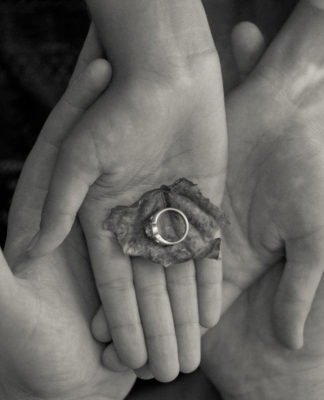Limerence, a term coined in 1977 by psychologist Dorothy Tennov, is an involuntary interpersonal state that involves strong sexual or intense emotional attraction to another person, combined with an overwhelming need to have the love object return the affection. These feelings are further intensified if the relationship is unrequited (either partially or fully), or in the face of adversity or the unavailability of the object of the person’s desire. If you have ever experienced the pain of rejection by your deep crush, you are at least somewhat familiar with the strong feelings of longing and heartache such experiences can produce.
The problem with limerence as a strategy to repair one’s unfulfilled past longings is that such obsessive love feelings usually arise in relation to someone who is unavailable in some way, whether it be emotionally, geographically, or intentionally. It is curious why one would choose to desire someone who is not available to return that love, but it happens. Why would this be? I believe one reason is because it is safer than having the same longing for someone who will eagerly return it. Limerence can be an effort to gain something that has eluded one in the past. The goal is to have that former unfulfilled desire to be satiated, and in doing so, to repair the breach in a past relationship. Feelings of longing from one’s past emerge in the present through limerence, and we are striving to satisfy a desire that has a long shot of being returned.
One view is that relationships are generally born in our attempts at reparation. That is, it is normal to replay the issues and roles of our past relationships in our current ones. It is also normal to want to repair the breaks and disappointments of our formative primary relationships (i.e., parents, caretakers, siblings, family members) in our present ones. The longing and desire we feel when limerence emerges in the present is often tied in part to the same desires and longings we felt growing up. It is important to recognize and acknowledge how our interpersonal lives incorporate our past, the present, and who we wish to be and be with in the future.
If we can view the nuances of our current relationships and the associated desires that we have in them in a more realistic way (and not just fixate on our obsessive-compulsive fantasies), we may not feel so torn and disheartened when we find an object of desire cannot satisfy us in the way we want. Liberation from limerence may be held within the acceptance that we want something from our partners and those we desire that they are unable or unwilling to provide. That clarity gives us a space to identify and separate unresolved feelings from the past in our present relationships, allowing us to make more informed decisions in the present.
However, the pull toward an unavailable lover compels us to continue to make attempts at repairing and resolving our earlier disappointments and at the same time keeps us from ever succeeding to reach our desired goal. That unhealthy pull also takes us away from finding better prospects or causes us to avoid those who may offer and foster an authentic relationship. Again, it often feels safer to continue to make attempts at securing a relationship that has no chance of materializing or going anywhere, if only because it keeps us protected from ever being truly connected and eventually being hurt again. Old patterns from past relationships are familiar and may even feel exciting during times when we are hurting the most. Limerence is an intense and powerful experience, but it is often a distraction from the vulnerability which genuine intimacy and connections require.
Thus, limerence is an intense phenomenon in the bonding stage of a potential relationship that may have unhealthy motivations propelling it. It can be very consuming and even destructive in one’s life, and thus if one finds oneself in the grip of an intense attraction that is not going well, one would likely benefit from examining the historical origins of the attraction, in order to achieve clarity and break free from the fetters of the past as well as to deal appropriately with the currently desired love interest. Unrequited love or unavailable partners are not the path to healthy relationships. It is important to maintain awareness and stop repeating unhealthy patterns of attraction if one wants to find and be in a good and healthy relationship.




















